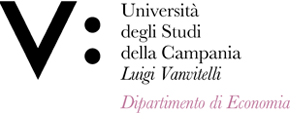Paola GRIMALDI
Insegnamento di DIRITTO DELL'ECONOMIA CIRCOLARE
Corso di laurea magistrale in ECONOMIA E MANAGEMENT
SSD: IUS/01
CFU: 8,00
ORE PER UNITÀ DIDATTICA: 56,00
Periodo di Erogazione: Primo Semestre
Italiano
| Lingua di insegnamento | Italiano |
| Contenuti | Il corso si focalizza sull'analisi della normativa nazionale ed europea dell'economia circolare, sui principi guida e concetti chiave della stessa con particolare riguardo a: problematiche del diritto della sostenibilità, rapporti negoziali della economia circolare, sostenibilità e durabilità del prodotto, energie rinnovabili e comunità energetiche. |
| Testi di riferimento | Testi normativi |
| Obiettivi formativi | L'insegnamento si propone di fornire allo studente: |
| Prerequisiti | Conoscenza della lingua italiana, orale e scritta (per studenti italiani). Buona capacità di analisi e sintesi di testi scritti. |
| Metodologie didattiche | Il corso si articola in lezioni frontali supportate dall'utilizzo della LIM e di slide, che vertono sull'analisi della normativa nazionale ed europea dell'economia circolare e dei relativi testi giuridici. |
| Metodi di valutazione | L'esame finale consiste in una prova orale nella quale viene valutato il raggiungimento dei risultati attesi, attraverso: |
| Altre informazioni | E' prevista la eventuale partecipazione di relatori esterni che possano contribuire al percorso formativo degli studenti. |
| Programma del corso | Il concetto di economia circolare nel diritto. Le fonti del diritto europeo della sostenibilità. Economia circolare e rapporti negoziali: Contratti di Rete, contratto 'Pay per Use', Acquisti Verdi (GPP), Intese di filiera, Contratti per la costruzione e il funzionamento di impianti di energia rinnovabile. La circolarità del prodotto tra sostenibilità e durabilità dello stesso: focus e case studies nei settori della plastica, tecnologie, salute e moda. I Criteri Ambientali Minimi (CAM). |
English
| Teaching language | Italian |
| Contents | The course focuses on the analysis of the national and European legislation of the circular economy, on the guiding principles and key concepts of the same with particular regard to: issues of sustainability law, negotiation relations of the circular economy, sustainability and durability of the product, renewable energy and energy communities. |
| Textbook and course materials | Regulatory texts |
| Course objectives | The course aims to provide the student with: |
| Prerequisites | Knowledge of the Italian language, oral and written (for Italian students). Good ability to analyze and synthesize written texts. Critical reasoning skills. |
| Teaching methods | The course is divided into lectures supported by the use of the IWB and slides, which focus on the analysis of the national and European legislation of the circular economy and the related legal texts. |
| Evaluation methods | The final exam consists of an oral test in which the achievement of the expected results is assessed, through: |
| Other information | The eventual participation of external speakers who can contribute to the students' training is foreseen. |
| Course Syllabus | The concept of circular economy in law. The sources of European sustainability law. Circular economy and negotiation relationships: Network contracts, Pay per Use contract, Green Purchases (GPP), Supply chain agreements, Contracts for the construction and operation of renewable energy plants. The circularity of the product between sustainability and durability of the same: focus and case studies in the sectors of plastics, technologies, health and fashion. The Minimum Environmental Criteria (CAM). |








